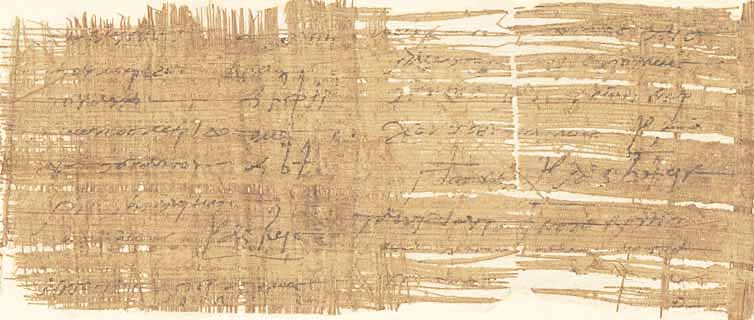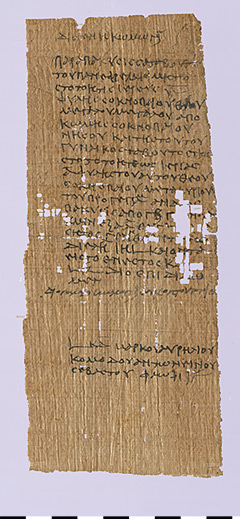BGU I 28 (P. 6932)
In this text Pakysis, priest of the god Soknopaios in the village Soknopaiu Nesos in Arsinoites, and his wife Tabus declare their seven-years-old daugther to the authorities. The document is dated on the 11th October 183 CE. It belongs to a group of similar documents from the Roman period defined as “notifications of birth”, although the children’s age at time of notification varied. They were for the most part boys: only few birth notices for girls have been preserved. Also, the children belonged mainly to families enjoying fiscal privileges like reduction of the poll tax. In Roman Egypt all male inhabitants from the age of fourteen were liable to the poll tax with exemption of roman citizens, whereas privileged classes paid a reduced amount. Privileged families submitted birth notifications to the authorities in order to ensure to their children the fiscal privileges of their class, i. e. payment of the poll tax at reduced amount from the age of fourteen. On the other hand women were anyway exempted from the poll tax and enjoyed therefore no privileged status. There could have been other reasons to notify the birth of a child, for example inheritance matters. However, this has not yet been clarified.



